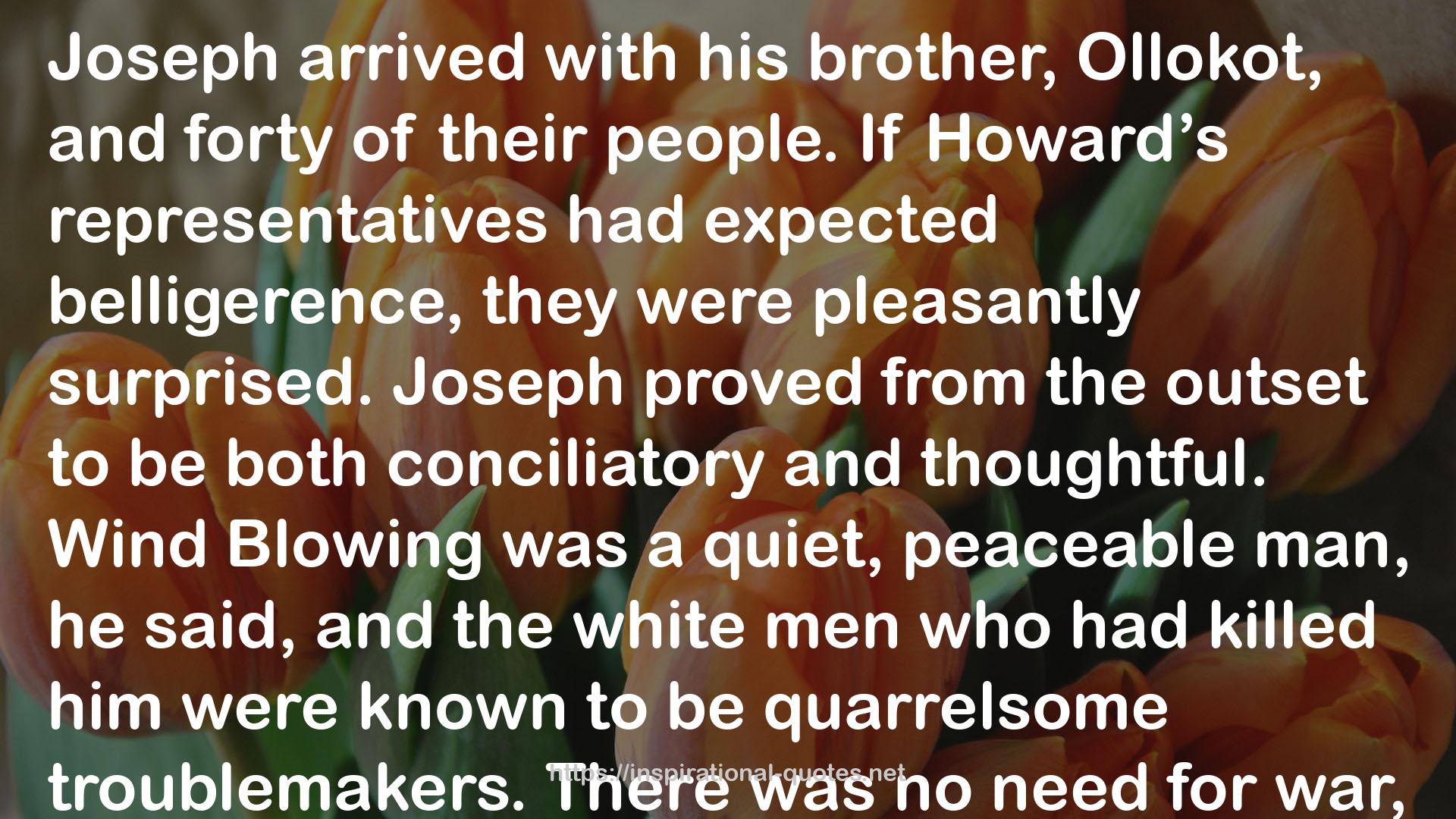" Joseph arrived with his brother, Ollokot, and forty of their people. If Howard’s representatives had expected belligerence, they were pleasantly surprised. Joseph proved from the outset to be both conciliatory and thoughtful. Wind Blowing was a quiet, peaceable man, he said, and the white men who had killed him were known to be quarrelsome troublemakers. There was no need for war, but there was a need for justice to be done. The government officials nodded in quiet agreement at the reasonable nature of this powerful chief. But then Joseph took his argument in an unexpected direction. The death of his friend, he explained, though unfortunate, was now a fact. But it was also a fact that his body had been buried in the Wallowa and his spilled blood had made the earth in that valley ever more sacred to the Nez Perce. Let the death of Wind Blowing hallow that land ever further in the minds of white men and cause them to commit themselves even more to preserving it for the Nez Perce for all time to come. Howard’s men were stunned. This was a serpent’s logic—clear, efficient, and deviously lethal. It took the high-minded position of calling for peace rather than punishment—exactly what the white officials wanted—but it made the price of that peace exactly what the white officials could not give up. No member of the ancient Roman senate could have been more eloquent, no highly skilled barrister more guileful and succinct. It was clear that Joseph was a formidable presence, both in the power of his character and the quality of his mind. As one of the government representatives in attendance put it, he displayed “an alertness and dexterity in intellectual fencing… that was quite remarkable. "
― Kent Nerburn , Chief Joseph & the Flight of the Nez Perce: The Untold Story of an American Tragedy
